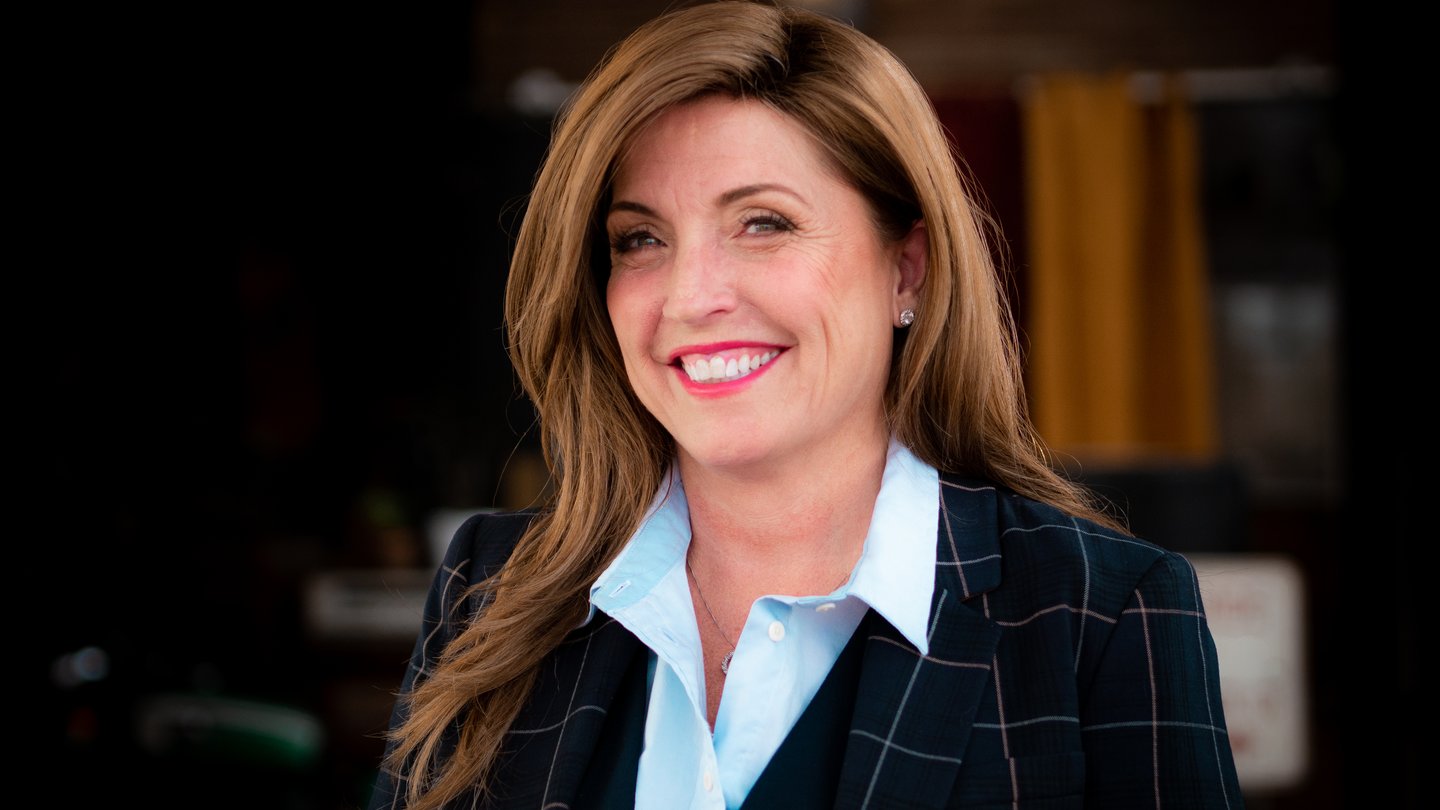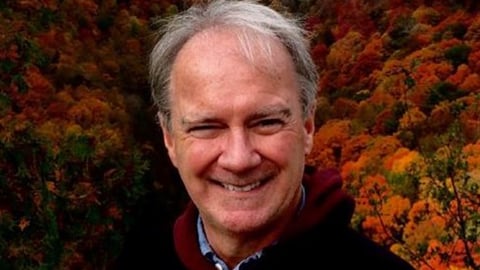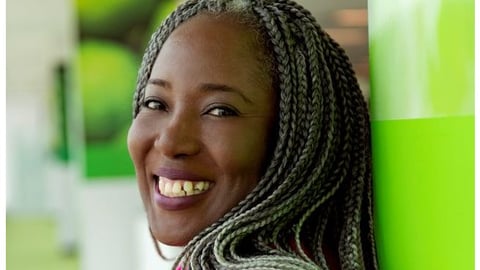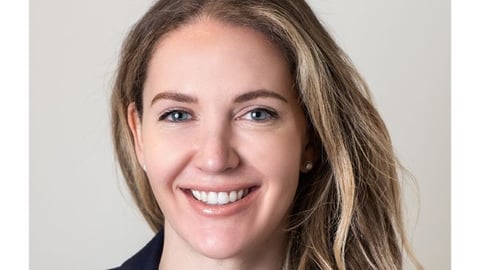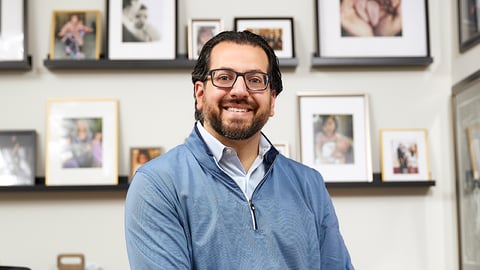How Second Harvest's Lori Nikkel Takes the Lead
Some aspects of leadership are learned on the job, and others are taught early on in life.
“I’m the youngest of four, and you either fight with your siblings and nothing gets done—or you figure out how to work together and get everything done,” says Lori Nikkel of Second Harvest, who has been with the country’s largest food rescue organization for 11 years, the past six as CEO.
Collaboration is key to Nikkel’s success as a leader and Second Harvest’s impact. In 2024, the “food bank to the food banks” rescued and redistributed 87.1 million pounds of surplus edible food. “There's more than enough food to feed everybody in Canada—it's just about connecting the dots,” explains Nikkel.
Second Harvest connects 4,400 non-profit partners, hundreds of food businesses across the supply chain, dozens of corporate sponsors and thousands of volunteers. Together, they’re preventing food waste from rotting in landfills, where it emits methane—a potent greenhouse gas—and redirecting it to food banks and community programs nationwide.
In 2024, Second Harvest (one of Canadian Grocer's 2023 Impact Award winners in the category of Sustainability) supported about 6.5 million Canadians through its non-profit partners.
The number of Canadians facing food insecurity soared following the pandemic. And now, as the U.S. wages a trade war against Canada, the situation could get much worse.
READ: Weak dollar, trade tensions putting food prices under pressure, Loblaw says
Economic hardship could push an additional two million people to rely on Second Harvest over the next year, creating a projected funding gap of $10.5 million.
"Some corporations were very close to signing major deals with us for a very significant amount of money but had to pull back due to the uncertainty surrounding the tariffs," she says. “They can’t fund us right now, and we can’t blame them because they’re looking to protect jobs. We don’t want their employees to have to use a food charity.”
Here, Nikkel—who has been recognized by the United Nations as Canada’s “Food Hero” and in 2022 was appointed to the order of Ontario—reflects on her collaborative leadership style, why true leadership isn’t about age or title and helping to lead the food industry during the trade war.
You identify the work that you do as “creating positive change by building people to become better leaders.” How can leaders become better leaders?
Collaboration is at the heart of everything we do—getting stuck in silos never fixes anything—and so building people up is important to me. The biggest thing about leadership is acting with integrity. If you say you’re going to do something, then do it. That’s it. I’ve been at this for a long time and many professional relationships I built in my 20s and 30s I still have today. That earned trust is important.
READ: Second Harvest CEO Lori Nikkel appointed to Order of Ontario
What is a misconception about leadership?
Many people conflate leadership with seniority. Or think leadership comes with a job title. But that isn’t true at all. You can have any job in the world, and if people listen to you and trust you, you’re a leader. You can be 10 years old and be a leader! At Second Harvest, we have leaders at every level and I look to hire people who are leaders even in junior positions. That allows everyone to think like entrepreneurs and be nimble. We don’t keep doing things the same way just because someone decided five years ago that it should be done that way. That was then, and we’re not the same as we were five years ago, and changing and transforming requires leadership.
How have you managed to bring on so many different partners in reaching Second Harvest’s goal of eliminating food waste?
Instead of rushing in with an agenda, even if you have one, it’s about taking the time to listen first. Look to understand where people are coming from and find common ground. Ask questions. Also, there’s always room for compromise and I've never hesitated to look for it. I also believe in keeping things light. I like to laugh. Early in my career, I noticed professionals who would joke and laugh outside the boardroom but become entirely different, very serious people inside. I’ve never been one to hide who I am. And I try to remove those professional masks in others, too. We’re all, after all, human and most of us want the best for each other. And so, when someone says to me, “I would do this personally, but as a company we’re leaning towards this opposite decision,” I gently push back. I ask, “So, you’re on board with this? Great.” If you believe in creating positive change, shouldn’t you act on that in your professional role, just as you would personally?
READ: Arlene Dickinson’s District Ventures Capital makes $50,000 food donation to Second Harvest
How are you helping smaller food banks right now during a really difficult time?
Essentially, we're the food bank for food banks. And there are 61,000 charities and nonprofits across the country involved in redistributing food—whether community centres, food banks, senior centres, schools. Right now, they have a lot of worries about being able to pay for operating costs and capital expenditures. If their industrial fridge breaks down, for example, the cost to replace it could be 25% higher than just a few months ago. And so, it may mean helping to try to connect them with a domestic manufacturer. Or providing them with only non-perishable food. We've also been sending a letter to our food partners asking, “How can we better support you through this?” People might think, “Well, how can you help them? What can you do?” But the only way to figure that out is by having those conversations. We’re also reminding our corporate and individual sponsors that they can still get a tax receipt for donations.
READ: Second Harvest talks results of two-year food waste project
Second Harvest doesn’t seem to have a rigid hierarchical structure. What ways can that structure get in the way of leadership?
Every organization has a hierarchy and process. I admit, I am not a fan of process and my staff has said, “Lori, we have to have some process!” [Laughs] And they’re right, especially as we have increased in size. But I don’t like processes for the sake of having processes. And so, we don’t operate with an approval system where you need to go through several layers before reaching the person who actually has the information you need. That kind of process wastes time—how long was that person waiting for the information? Instead, go directly to the person who has it, then let your boss know you’ve got it. Also, I make myself always accessible, both figuratively and literally. I meet with staff individually for about half an hour when they start at Second Harvest to say, "I am here anytime because we’re all in this together." This helps build an environment where people don’t panic when the CEO calls. [Laughs]
What do you do outside work that makes you a better leader at work?
I'm a parent of grown children and a new grandma. Enough said.
Canadian Grocer's How I Take The Lead series speaks to people from across the industry about how they take the lead on a specific project, initiative or aspect of their job. You’ll hear from grocery leaders about their passions, how they tackle challenges, what they’ve learned and what keeps them motivated. Have a pitch? Send it to digital editor Jillian Morgan.

